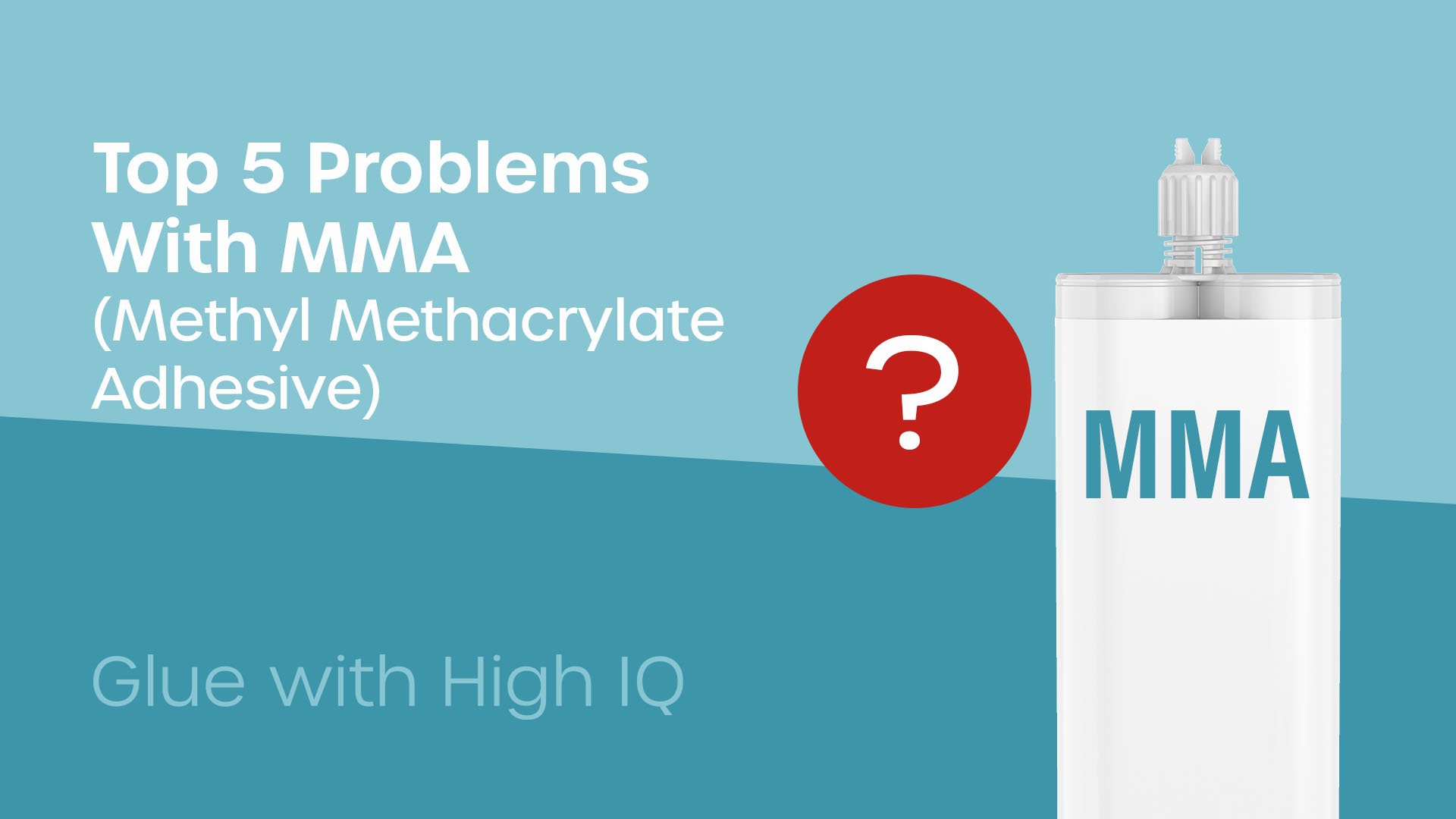
Although the use of methyl methacrylate adhesives (aka acrylics) comes with plenty of perks, there are a few drawbacks too. They may not be the right adhesive for your application.
Here at Forgeway, we have been manufacturing industrial adhesives for over 25 years. And having worked with the product for over 6 years myself, I have experienced the drawbacks of acrylics firsthand.
That’s not to say they are an excellent adhesive solution. There are plenty of articles in our Knowledge Centre which cover the benefits of MMA adhesives. But this article will give an overview of the drawbacks to methyl methacrylate adhesives.
1. Methyl methacrylates have a strong smell
There’s no getting away from the scent associated with MMA. The scent itself isn’t harmful (guiltily I kind of like it), but in an enclosed space, it can cause intense headaches.
Simple solution – make sure you’re working in a well-ventilated area! If this isn’t possible, there are some helpful technologies. You can now pick up an air-fed visor for less than £300!
2. They can have an Exothermic reaction when curing
When MMA cures, the chemical reaction creates an exothermic reaction (heat). This reaction can cause distortion on sensitive paints, or damage to outer coatings. In some cases, the exotherm can leave ‘witnessing’ on the substrates.
If this is a concern of yours, it may be worth considering a slower curing product or an MMA adhesive with a lower exotherm.

3. Some MMA’s don’t have much Impact Resistance
As a rule of thumb, a 1:1 ratio of MMA will have a lower impact resistance than a 10:1 MMA. This is due to the flexibility of the cured adhesive. I recommend you read our article which discusses the importance of impact-resistance in an adhesive.
If the adhesive doesn’t meet your impact resistance requirements, observe the mode of failure. Is the adhesive coming away from a powdered section (indicating adhesive failure)? Or has the powder-coat material changed?
If the MMA doesn’t have enough impact-resistance for your application, it could cause cohesive failure or even substrate failure.

4. Methyl methacrylate adhesives can Cost a lot
Having worked in the adhesive industry for 8 years now, I have seen MMA being quoted over 10x what it’s worth. Realistically, MMA shouldn’t cost any more than £25 per kilo (if purchased in bulk), or £25 per 400-500ml cartridge (where purchased individually).
When it comes to purchasing methyl methacrylates, we’d recommend buying directly from a manufacturer where possible to save cost. However, the decision is up to you, read more here.
5. They might not have a very good Shelf Life
Some Methyl Methacrylate based adhesives have a shelf life of just 3 months! We believe that most products should have a life of between 9 – 12 months.
Pro Tip: If you’re in need of an extension, you can store unopened products in the refrigerator.
Not sure whether methyl methacrylates will do the job?
Fortunately for you, there are multiple variations of methyl methacrylate adhesives out there. But when it comes to choosing whether to stick or twist (pun intended), it is never easy.
All of the drawbacks I discussed in this article can be eliminated by adhesive manufacturers tweaking formulations. However, if you really think that methyl methacrylate adhesives won’t be a good fit for you, there are plenty of other options available.
Epoxy adhesives are the main alternative to methyl methacrylate adhesives. We recommend reading the article comparing these two adhesives. Click the banner below to read more.
Thomas is the Content Manager here at Forgeway. Thomas' job is to translate the technical jargon from the ivory tower of academia into easy-to-read content that everyone can understand. Forgeway's mission is to answer every question our customers and prospective clients ask, or are apprehensive to ask.
Topics:



